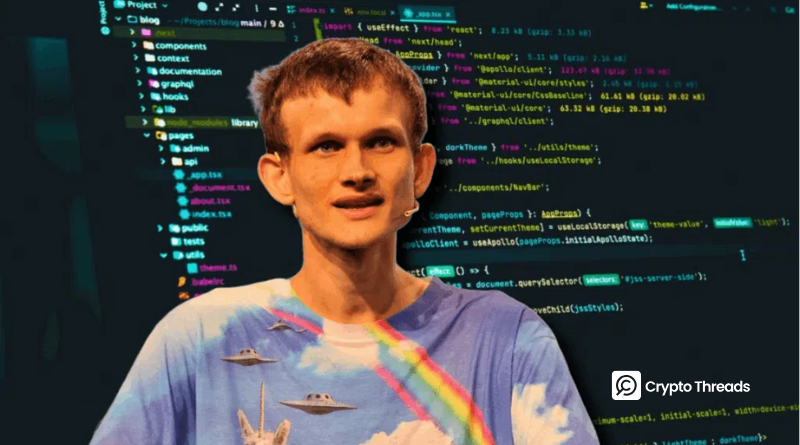Vitalik Buterin Urges Open-Source Infrastructure for Health, Finance, and Governance
Ethereum co-founder Vitalik Buterin warns that relying on closed digital systems invites abuse and monopolies. In a new blog post, he calls for open-source, verifiable infrastructure across healthcare, finance, and voting to protect trust, privacy, and efficiency.
- Healthcare Risks: Proprietary health tech limits access and fuels mistrust; praises projects like PopVax for open vaccine processes.
- Financial Efficiency: Contrasts a 5-second crypto transaction with a costly 30-minute international document signing.
- Voting Integrity: Advocates open hardware/software to replace “black box” voting machines for true public trust.
- Privacy First: Reiterates that privacy must be a core design principle, highlighting Ethereum’s evolving privacy roadmap.
Vitalik Buterin, Ethereum’s co-founder, has issued a call for open-source, verifiable infrastructure to power critical global systems—healthcare, finance, and governance—warning that closed, corporate-controlled technology threatens both trust and efficiency. Writing on his personal blog, Buterin argued that societies benefit most when they produce transparent technology, not merely consume it. “Openness and verifiability can fight against global balkanization,” he wrote, cautioning that without deliberate action “we will likely get digital computer things that are built and run by centralized corporations.”
Buterin highlighted healthcare as a prime example: proprietary platforms can create data monopolies and limit public access while exposing users to surveillance. He cited the COVID-19 vaccine rollout, where opaque manufacturing and communication systems undermined public confidence, and praised open initiatives like PopVax for lowering costs and reducing skepticism.

Finance faces similar challenges. Buterin contrasted the frictionless nature of blockchain—signing a crypto transaction in five seconds—with the cumbersome reality of traditional finance, where sending a signed legal document overseas took him half an hour and cost $119. He said crypto wallets and blockchain infrastructure already prove how open, verifiable systems cut through inefficiency.
Voting, too, demands transparency. Decades of skepticism toward electronic voting machines underscore the danger of proprietary “black box” software. Buterin called for secure, open hardware and software to ensure verifiable democratic processes.
A long-time privacy advocate, Buterin reiterated that privacy must remain a core design goal for any system meant to serve the public. He pointed to Ethereum’s own privacy roadmap, which lays out near-term protocol changes to strengthen user confidentiality.
Final Thought
Buterin’s message is clear: the future’s critical infrastructure must be open, auditable, and privacy-focused—or risk monopolies, inefficiency, and eroded public trust.



